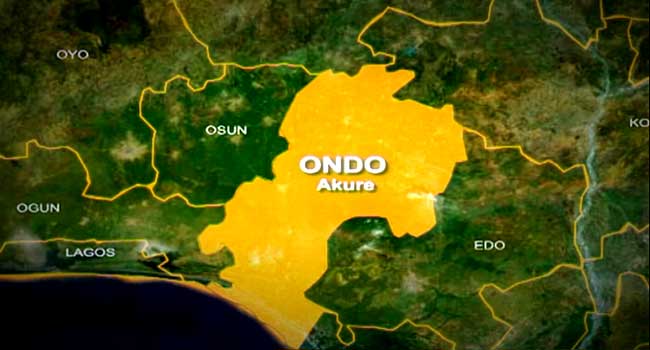The Ondo State off-cycle governorship election, conducted by the Independent National Electoral Commission (INEC) on 16th November, 2024, was preceded by a surfeit of challenges.
Campaigns, by the candidates and political parties, gained traction only at the eve of the election. Though incidents of violence were minor, billboards of opposition candidates were torn or defaced by toughs. The opposition Peoples Democratic Party (PDP) alleged, stridently, that the Resident Electoral Commissioner (REC) for the state, Barrister Oluwatoyin Babalola, was in cahoots with the governing All Progressives Congress (APC).
Stakeholders were concerned about the wholesomeness of the election and viewed with trepidation its conduct, given the fact that two of the Local Government Areas (LGAs) in the state (Ese Odo and Ilaje) were riverine. In fact, the Alape River, in Ilaje, flows into Lekki and Apapa in Lagos. Additionally, the Alape River peters out at the Bight of Benin and the Atlantic Ocean. These riverine areas are prone to boat mishaps and hijackings as evidenced by incidents that visited the 2016, 2019 and 2020 Governorship and House of Assembly elections.
Logistics, which have become perennial and, which have proven to be the Commission’s Achilles heel, were expected to once more dog, if not frustrate, the off-cycle governorship election.
- 2027: Zoning takes front seat as early campaigns begin for Nasarawa guber race
- A/Court sets suspension of Kano anti-corruption boss aside
Mercifully, election materials, especially sensitive ones, were distributed timeously and in the full glare of party agents, journalists and observers.
Most of the Polling Units(PUs)on election day were set up and were opened on schedule across the state, including in areas with challenging terrains and far flung destinations.
Even though it took a record ten minutes to accredit the PDP governorship candidate, Chief Agboola Ajayi, the Bimodal Voter Accreditation System(BVAS) performed optimally across the state. Where there were glitches, Registration Area Technical Staff/Officers (RATECHS) were on hand to troubleshoot.
The INEC Results Viewing Portal (IReV) was up and running. Its proficiency was such that by the evening of Election Day, nearly 98% of PU results had been uploaded and were available for viewing.
The security agencies comported themselves professionally. Beside being impartial and neutral, the Nigerian Navy and Marine Police gave excellent accounts of themselves. They escorted men and materials along one of Nigeria’s longest coastlines. They also secured the waterways against hoodlums, miscreants and infiltrators. The upshot of their yeoman’s job was that no incident, either of hijacking or capsizing of any boat, was reported.
Collation, long identified as the most vulnerable aspect of the election process, was seamless all through the three tiers/layers (Ward, Local Government and State), all thanks to early commencement of polls which in turn birthed early voting, and timely sorting and counting of votes at the PUs.
If the BVAS, IReV and Collation worked seamlessly, voter turn out had plummeted. In last Saturday’s election, voter turnout was put at 24.8%. Compare this with that of the 2020 off-cycle governorship election which was at a healthier 32.7% and the decline comes across as steep.
Vote buying and selling were prevalent before and during the election. They were as commonplace as those that attended the recent off-cycle governorship elections in Bayelsa, Kogi, Imo, and most recently, Edo State.
As the Commission prepares, in earnest, to conduct the Anambra State off-cycle governorship election in November 2025, it must come to terms with the aforementioned challenges. It must also be guided and informed by the failings of the elections in has conducted since 2023.
The Commission lost the confidence and trust of many stakeholders after the conduct of the 2023 General Elections. Matters were not helped by the conduct of the less than stellar off-season governorship elections that followed.
The conduct of the Ondo State off-cycle governorship election of 16th November, acclaimed to be fair by most stakeholders, seems to signal the commencement of the Commission’s journey of redemption. To further consolidate on it, and to earn the trust of stakeholders, it must not rest on its oars. Neither should it be merely content with conducting elections that oscillate between excellence and mediocrity. It must tread, firmly and consistently, on the path of excellence and the conduct of credible and transparent elections.
The case for following a consistent track of excellence and professionalism gains urgency and importance when we consider the impending Anambra State off-cycle governorship election of next year. Going by precedent, it promises to be more challenging than the Edo and Ondo off-cycle governorship elections put together.
In 2021, the security situation in Anambra State had so deteriorated that the election nearly did not hold. Former President Muhammadu Buhari had to order our security agencies to intervene muscularly and to create an environment for the conduct of the said election. In spite of this stalwart intervention, ad hoc staff, who had been trained ahead of the election, feared for their lives and stayed away.
If heightened insecurity was not bad enough, voter turnout was abysmally low. Whereas voter turnout in the Anambra State off-cycle governorship elections of 2013 and 2017 were 32.7% and 22% respectively, the voter turnout in 2021 was a mere 10%!
The Commission and other critical stakeholders must thus squarely address the concerns of low voter turnout and the menace of vote buying and selling. These tendencies, which are rearing their ugly heads, have characterised our elections in recent times. They are also reducing our democracy into a sham and a counterfeit. Some of the ways to address these concerns are for the Commission to engage, robustly and forthrightly, with the political class, continue to conduct stellar elections that meet standards of transparency and credibility and intensify and expand our voter education.
The Commission must take the lead in all these. After all, the buck of elections stops on its table.
Nick Dazang is a former director at the Independent National Electoral Commission (INEC).

 Join Daily Trust WhatsApp Community For Quick Access To News and Happenings Around You.
Join Daily Trust WhatsApp Community For Quick Access To News and Happenings Around You.


